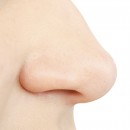A round-up of selected recent media coverage citing, discussing, and presenting health evidence - updated throughout the month. 'Surprisingly Little Evidence for the Usual Wisdom About Teeth' in The New York Times rounds up oral health evidence - with Cochrane Reviews in the spotlight.
'Testing government policies first means we spend...
News and jobs
-
 29 August 2016
29 August 2016 -
 Cochrane's 2015 Annual Review is now available. The 2015 Review features updates from the Steering Group Co-Chairs, the CEO, and the Editor in Chief, as well as achievements from 2015 and plans for 2016. Get the latest updates on Strategy to 2020, our financial standing, and our geographical reach. Read more about how Cochrane Reviews are making a...23 August 2016
Cochrane's 2015 Annual Review is now available. The 2015 Review features updates from the Steering Group Co-Chairs, the CEO, and the Editor in Chief, as well as achievements from 2015 and plans for 2016. Get the latest updates on Strategy to 2020, our financial standing, and our geographical reach. Read more about how Cochrane Reviews are making a...23 August 2016 -
 Cochrane Nutrition's vision is to make Cochrane the independent, globally recognized go-to place for nutrition systematic reviewsCochrane is delighted to announce the establishment of the Cochrane Nutrition Field (Cochrane Nutrition), under the leadership of Cochrane South Africa (SA), the South African Medical Research Council, and the Centre for...22 August 2016
Cochrane Nutrition's vision is to make Cochrane the independent, globally recognized go-to place for nutrition systematic reviewsCochrane is delighted to announce the establishment of the Cochrane Nutrition Field (Cochrane Nutrition), under the leadership of Cochrane South Africa (SA), the South African Medical Research Council, and the Centre for...22 August 2016 -
 Scarce evidence, but pointers to promising strategies to fight corruption in health care
Scarce evidence, but pointers to promising strategies to fight corruption in health care
Corruption can occur in any area of the health sector, and happens when people abuse their own position to benefit themselves, their organization, or other people close to them. It can take many forms, including bribes, theft, or giving incorrect or...18 August 2016 -
 Lack of good research on which programs or strategies are useful in preventing or reducing elder abuse
Lack of good research on which programs or strategies are useful in preventing or reducing elder abuse
The maltreatment of older people, also known as elder abuse, is a global problem, affecting large numbers of people worldwide. It’s a single or repeated act and, although it may be caused by employed carers, the abuse is more commonly...16 August 2016 -
 Are there benefits of offering music interventions as a complementary treatment to people with cancer?Cancer may result in extensive emotional, physical, and social suffering. Current cancer care increasingly incorporates psychosocial interventions to improve quality of life. Music therapy and music medicine interventions have been used to...15 August 2016
Are there benefits of offering music interventions as a complementary treatment to people with cancer?Cancer may result in extensive emotional, physical, and social suffering. Current cancer care increasingly incorporates psychosocial interventions to improve quality of life. Music therapy and music medicine interventions have been used to...15 August 2016 -
 One randomized trial has been done to date that compares different ways of using sunscreen and physical barrier methods to protect against common non-melanoma skin cancers. The quality of evidence to date is low, but the review team urge caution in changing behaviour on the basis of the review findings.
One randomized trial has been done to date that compares different ways of using sunscreen and physical barrier methods to protect against common non-melanoma skin cancers. The quality of evidence to date is low, but the review team urge caution in changing behaviour on the basis of the review findings.
Keratinocyte cancer is a more...12 August 2016 -
 Chewing gum, lozenges, or syrup with xylitol can reduce the occurrence of middle ear infection among healthy children from 30% to 22%.Acute otitis media (AOM) is the most common bacterial infection among young children in the United States. AOM creates a thick of sticky fluid behind the eardrum in the middle ear with a rapid onset of ear pain,...10 August 2016
Chewing gum, lozenges, or syrup with xylitol can reduce the occurrence of middle ear infection among healthy children from 30% to 22%.Acute otitis media (AOM) is the most common bacterial infection among young children in the United States. AOM creates a thick of sticky fluid behind the eardrum in the middle ear with a rapid onset of ear pain,...10 August 2016 -
 We have rounded up Cochrane evidence to help support athletes seeking to win a gold medal …and for everyone that is inspired to get active!Cryotherapy: does it work and is it safe?Injection treatments for Achilles tendinopathyKnee orthoses for patellofemoral pain syndromeRubefacients for musculoskeletal painStretching -does it reduce muscle...8 August 2016
We have rounded up Cochrane evidence to help support athletes seeking to win a gold medal …and for everyone that is inspired to get active!Cryotherapy: does it work and is it safe?Injection treatments for Achilles tendinopathyKnee orthoses for patellofemoral pain syndromeRubefacients for musculoskeletal painStretching -does it reduce muscle...8 August 2016 -
 Study offers insight on factors influencing choice of publication in Cochrane and non-Cochrane sources.
Study offers insight on factors influencing choice of publication in Cochrane and non-Cochrane sources.
New evidence published in BioMed Central’s Systematic Reviews provides some insights into authors’ experiences preparing and publishing systematic reviews, as well as factors that influence choice of publication arena, specifically...4 August 2016 -
 Tianjing Li and Julian Higgins recognized for their important contributions. The Society for Research Synthesis Methodology supports and promotes the development and use of innovative and robust methods of research synthesis. At their 2016 Annual Meeting, held in Florence, Italy from 11-13 July, the Society recognized the important contributions...27 July 2016
Tianjing Li and Julian Higgins recognized for their important contributions. The Society for Research Synthesis Methodology supports and promotes the development and use of innovative and robust methods of research synthesis. At their 2016 Annual Meeting, held in Florence, Italy from 11-13 July, the Society recognized the important contributions...27 July 2016 -
 Authors working with the Cochrane ENT Group recently published six reviews which look at the evidence around different treatment options for chronic rhinosinusitis.Chronic rhinosinusitis is a common condition that is defined as inflammation of the nose and paranasal sinuses (a group of air-filled spaces behind the nose, eyes, and cheeks). Patients...26 July 2016
Authors working with the Cochrane ENT Group recently published six reviews which look at the evidence around different treatment options for chronic rhinosinusitis.Chronic rhinosinusitis is a common condition that is defined as inflammation of the nose and paranasal sinuses (a group of air-filled spaces behind the nose, eyes, and cheeks). Patients...26 July 2016 -
 A round-up of selected recent media coverage citing, discussing, and presenting health evidence - updated throughout the month "When and how to update systematic reviews: consensus and checklist": BMJ paper from a team of Cochrane-affiliated contributors outlines issues relevant to making decisions about updating reviews, and provides a ...21 July 2016
A round-up of selected recent media coverage citing, discussing, and presenting health evidence - updated throughout the month "When and how to update systematic reviews: consensus and checklist": BMJ paper from a team of Cochrane-affiliated contributors outlines issues relevant to making decisions about updating reviews, and provides a ...21 July 2016 -
 A recent article in the Drug and Therapeutics Bulletin on the BMJ states that other than folic acid and vitamin D, there is limited evidence of the benefits of the often expensive prenatal multivitamins. This story has been picked up by many media outlets including BBC News, CBC News, and The Japan Times. The conclusions are in line with what...13 July 2016
A recent article in the Drug and Therapeutics Bulletin on the BMJ states that other than folic acid and vitamin D, there is limited evidence of the benefits of the often expensive prenatal multivitamins. This story has been picked up by many media outlets including BBC News, CBC News, and The Japan Times. The conclusions are in line with what...13 July 2016 -
 Cochrane evidence indicates that only 10% of people with tension-type headaches experience benefit from taking oral paracetamolTension-type headache affects about one person in five worldwide. People with frequent, or acute episodic, tension-type headache have between two and 14 headaches every month. Tension-type headache stops people...4 July 2016
Cochrane evidence indicates that only 10% of people with tension-type headaches experience benefit from taking oral paracetamolTension-type headache affects about one person in five worldwide. People with frequent, or acute episodic, tension-type headache have between two and 14 headaches every month. Tension-type headache stops people...4 July 2016 -
 For more than 20 years, Cochrane has produced systematic reviews of primary research in human health care and health policy. We are internationally recognized as the highest standard in evidence-based healthcare resources.The fourth video in the Cochrane Making a Difference series focuses on the Cochrane Review 'Systemic safety of bevacizumab...1 July 2016
For more than 20 years, Cochrane has produced systematic reviews of primary research in human health care and health policy. We are internationally recognized as the highest standard in evidence-based healthcare resources.The fourth video in the Cochrane Making a Difference series focuses on the Cochrane Review 'Systemic safety of bevacizumab...1 July 2016 -
 A round-up of selected recent media coverage citing, discussing, and presenting health evidence - updated throughout the month"Publication of reviews synthesizing child health evidence (PORSCHE): a survey of authors to identify factors associated with publication in Cochrane and non-Cochrane sources": article in the journal Systematic Reviews ...29 June 2016
A round-up of selected recent media coverage citing, discussing, and presenting health evidence - updated throughout the month"Publication of reviews synthesizing child health evidence (PORSCHE): a survey of authors to identify factors associated with publication in Cochrane and non-Cochrane sources": article in the journal Systematic Reviews ...29 June 2016 -
 The Cochrane Editorial Unit is pleased to announce the 10 successful titles from the second Cochrane Review Support Programme (CRSP) funding round.Delayed antibiotics for respiratory infections (Acute Respiratory Infections Group) Bisphosphonates and other bone agents for breast cancer (Breast Cancer Group)Psychological therapies for the treatment...27 June 2016
The Cochrane Editorial Unit is pleased to announce the 10 successful titles from the second Cochrane Review Support Programme (CRSP) funding round.Delayed antibiotics for respiratory infections (Acute Respiratory Infections Group) Bisphosphonates and other bone agents for breast cancer (Breast Cancer Group)Psychological therapies for the treatment...27 June 2016 -
 New Cochrane evidence indicates that effects of adding zinc to staple foods are unclearLow levels of zinc, or zinc deficiency, is a common problem in children and women living in low- and middle-income countries. Cereal-based foods and legumes are rich in dietary fibre and phytates, which reduce absorption of zinc from the intestine. As people in...24 June 2016
New Cochrane evidence indicates that effects of adding zinc to staple foods are unclearLow levels of zinc, or zinc deficiency, is a common problem in children and women living in low- and middle-income countries. Cereal-based foods and legumes are rich in dietary fibre and phytates, which reduce absorption of zinc from the intestine. As people in...24 June 2016 -
 We are delighted to announce that the work of Cochrane Crowd, Cochrane’s new citizen science platform, is going open access.Cochrane Crowd, launched in May 2016, is a global community made up of volunteers who are helping to identify the research needed to support informed decision-making about healthcare treatments.Cochrane Crowd has already...23 June 2016
We are delighted to announce that the work of Cochrane Crowd, Cochrane’s new citizen science platform, is going open access.Cochrane Crowd, launched in May 2016, is a global community made up of volunteers who are helping to identify the research needed to support informed decision-making about healthcare treatments.Cochrane Crowd has already...23 June 2016
